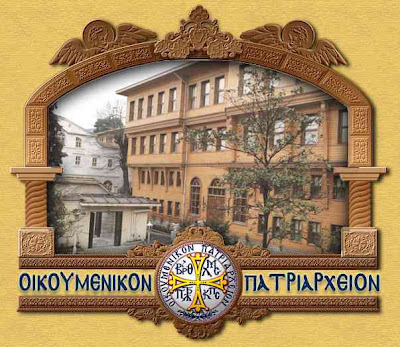
Mustafa Akyol
November 19, 2010
Hurriyet Daily News
What brought me to the European capital this time is an international conference organized by the Archons.
Never heard of the Archons before? I, at least, had not heard about them until a few months ago, when they invited me to speak at the “Religious Freedom: Turkey’s Bridge to the European Union” conference, which was held this week right at the European Parliament.
In the time between, I learned that the term “archon,” which originated in Byzantium and stands for pious Orthodox Christian believers who dedicate themselves to the service, and the defense, of their “mother church” – the Ecumenical Patriarchate of Constantinople. Most contemporary Archons are members of the American Greek community who support the Patriarchate by diplomacy and dialogue, besides donations and prayers.
Toying with treason
Besides the Archons themselves, the conference was joined by prominent Orthodox clerics, including Archbishop Demetrios and dozens of Western experts who focus on issues of religious freedom in Turkey. On the Turkish side, there was EU minister Egemen Bağış, who represented the Turkish government, members of various minority groups in Turkey and several Turkish lawyers and journalists.
The take-away message was that religious freedom needs to be enhanced in Turkey for all minority groups – and also for the Muslim majority, as several speakers, including myself, have underlined. As for the specific case of the Ecumenical Patriarchate, two crucial steps are urgently needed: the Halki Seminary, which was tyrannically closed down in 1971 during one of Turkey’s customary military coups, needs to be reopened. And the Turkish authorities simply need to respect the name of the institution.
I am sure some of my fellow Turks will denounce me as a “traitor” for saying that. So be it. But let me at least explain why.
First, I believe that no state, including mine, should have the power to decide how individuals and civil institutions should define themselves. States should exist to respect and protect our freedoms – not to violate them. Therefore it is utterly unacceptable to me that any state can dare to define the name of a religious institution – especially one that has existed for almost two millennia.
Second, Turks actually had no problem with the title “ecumenical” for centuries. Under the Ottoman Empire, the Patriarchate was given full amnesty and autonomy, and no Ottoman authority ever thought of interfering with its name. Even under the Turkish Republic, which has been less liberal than the Ottoman Empire in many aspects, the title of the Patriarchate did not become an issue for a long time.
It was only in the 1990s that some ultra-nationalist ideologues noticed that “ecumenical” means “universal.” This, they furiously noted, implies an authority that surpasses that of the Turkish state. And since worshipping the Turkish state is their raison d’être, they saw a big insult here. Soon, they even manufactured conspiracy theories about the “hidden agenda” of the Ecumenical Patriarchate, which is, supposedly, to build a “new Byzantium” in Istanbul.
My response to this is that the real insult to Turkey is to make it look so paranoid and senseless. The Ecumenical Patriarchate claims a spiritual authority, not a political one. (As Jesus said to Pilate: “my Kingdom is not of this world.”) We Turks should have nothing to say in this spiritual realm, which is simply none of our business.
Bad reciprocity
The third issue at stake is the age-old principle of “reciprocity” between Turkey and Greece in regards to their respective Greek and Turkish minorities. I don’t like that principle, for it regards human rights as a bargaining chip. But even when we take that as a given, why are we following it on a lose-lose basis, by which both the Greek Orthodox in Turkey and the Muslim Turks in Greece get deprived of their freedoms?
Why don’t we rather use Prime Minister Recep Tayyip Erdoğan’s famous win-win formula, by setting our Christians free and then asking the Greeks to do the same for their Muslims?
Perhaps, then, Greece can retreat from some of its shameful policies, too – such as not allowing even a single mosque in Athens.
This last point brings me to what I also said at the Archons Conference on Religious Freedom: Turkey, despite all the positive developments in the past decade, still has lots of shortcomings with regards to religious freedom. But this is not an exclusively Turkish problem. The neighboring Greece is hardly any better when it comes to the rights of the Turks in Western Thrace. Bulgaria is fine now, but it carried out a horrible policy of forced assimilation on its Turks in the 1980s. For all these countries, and others in this part of the world, have been haunted by similar fears and poisoned by similarly nationalistic ideologies.
But now is the time to move on, and let freedom reign in the whole region. On the Turkish side, I suggest we start by simply acknowledging that His All Holiness Bartholomew I is the ecumenical patriarch. That will affirm a much-needed respect not just to him and his church – but also to our very selves.